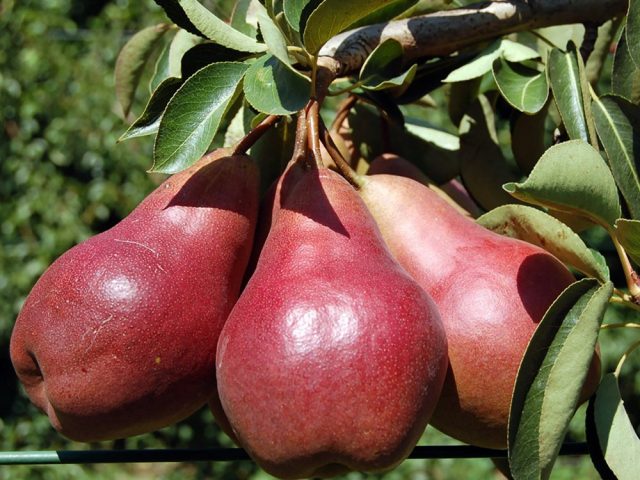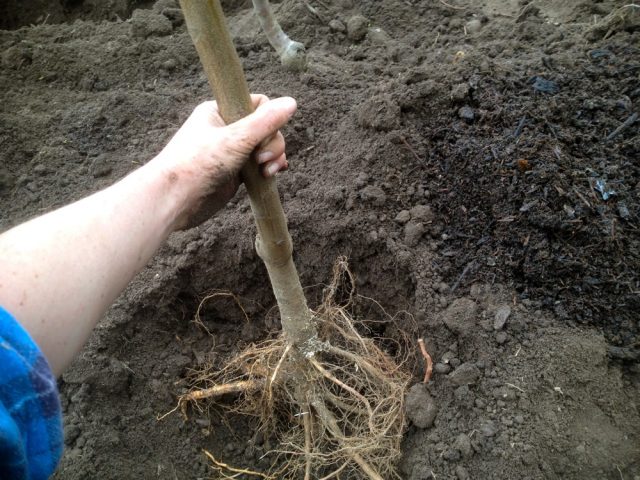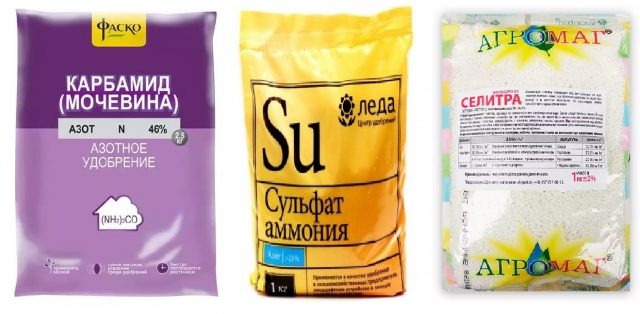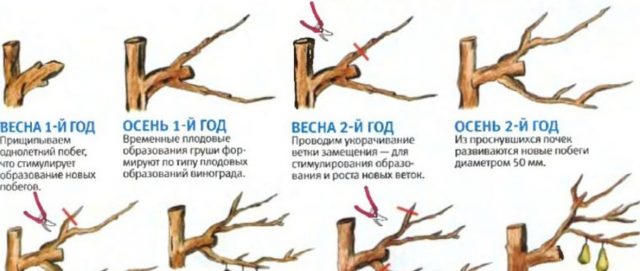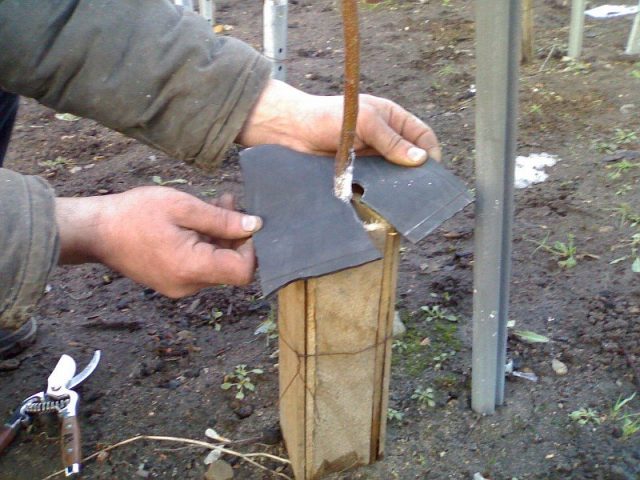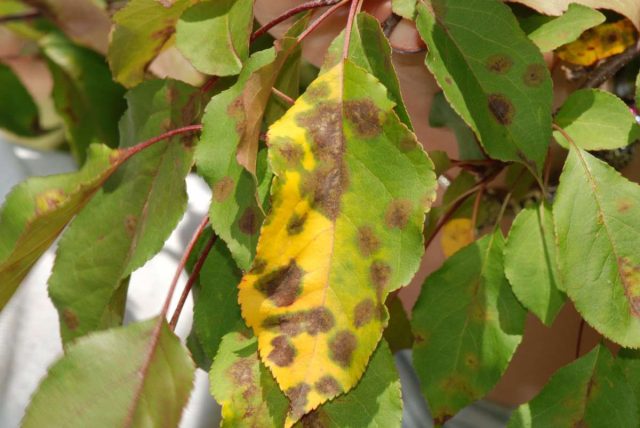Content
The Starkrimson pear was obtained by breeders by cloning the variety Lyubimitsa Klappa. The plant was registered in 1956. And the main difference of the new variety is the outwardly attractive appearance of the fruit.
Description of Starkrimson pear
The height of an adult tree can reach 5 m, so the pear is classified as a vigorous plant. The crown is wide, has a pyramidal shape.
The Starkrimson pear is densely leafed, there are leafy plates of a dark green or burgundy color with pointed tips. Flowering is medium late.
Fruit characteristics
The average weight of one pear varies from 180 to 200 g, but there are fruits weighing up to 300 g. The fruit has an oval-elongated shape, as it ripens, it changes color from yellow to red.
The flesh of the Starkrimson pear is white, sweetish-sour in taste, with a very delicate, nutmeg aroma.
The fruits are widely used in the manufacture of desserts, jams and preserves. Delicious liqueurs and compotes are obtained from the fruit.
Pros and cons of the Starkrimson pear variety
An objective assessment of the advantages and disadvantages of a plant allows you to choose the best option for your garden. According to the description and photo of the Starkrimson pear variety, it has a decorative appearance, a beautiful wide crown and attractive fruits.
Benefits:
- the tree tolerates drought and low temperatures well;
- unpretentious care;
- high productivity;
- the presence of immunity to pests and parasites.
The disadvantages of the Starkrimson variety include its tallness and the inability to transport fruits over a long distance.
Optimal growing conditions
On the garden plot, it is recommended to give preference to a place with good lighting: the tree tolerates shade well, but this leads to a decrease in yield.
The variety is recommended to grow on loose, with little clay, moist soil. It is important to choose an area that is sheltered from the wind.
Starkrimson pear tolerates moisture deficiency well, but this affects fruiting and frost resistance.
Planting and caring for the Starkrimson pear
When growing a variety, it is important to consider the climate. In the northern and southern regions, they prefer to transfer seedlings to the soil in the spring. This allows the tree to adapt and take root so that it is not afraid of frost. It is recommended to carry out the procedure from April 20 to 30.
It is allowed to plant Starkrimson pears in the fall. The optimal time for this is no later than the second half of October.
Landing rules
According to the description of the variety, Starkrimson pear does not require strict adherence to a specific planting algorithm, therefore, they adhere to the general rules:
- the distance from buildings and fences from a tree is at least 3 m;
- a hole for a seedling is dug up to a depth of 1.2 m and a diameter of up to 80 cm, the soil is loosened to the depth of a bayonet and 4-5 handfuls of ash are added, everything is spilled with water so that the soil has a creamy consistency;
- the roots of a pear seedling are dipped into the resulting mixture, after which the soil is loosened again and 10 raw eggs are added, mixed and sprinkled with dry earth;
- the treated seedling is placed in a hole, then sprinkled with soil and another 10 eggs are laid around the perimeter, this will provide the plant with the necessary nutrients;
- at the end of the procedure, around the trunk, the soil must be mulched with needles, sawdust or peat.
Watering and feeding
The Starkrimson pear variety is not demanding on soil moisture: with heavy precipitation, the procedure is not carried out, in hot months watering is carried out more often. The norm is 20-30 liters of water per 1 m2 ... It is important, after moistening the soil, it loosens the soil in the near-trunk area.
The feeding time depends on the planting season of the variety. Spring seedlings are fertilized in the second year after transfer to the soil. Pears planted in the fall are fed one year after the snow melts.
In the spring, it is necessary to introduce preparations with a nitrogen content into the soil. This has a beneficial effect on the flowering and fruiting process. Use agents such as ammonium or sodium nitrate, urea. Often they are produced in granular form, so the product is scattered around the plant and loosened the soil.
Fertilization in summer has a positive effect on the appearance of fruits and plants. To do this, use potassium and phosphorus dressings, which are dissolved in water, according to the instructions. The resulting substance is irrigated with the crown of a tree in calm morning weather.
Autumn feeding allows the Starkrimson pear to compensate for the lack of nutrients and safely tolerate low temperatures. The procedure is carried out in September, immediately after the harvest. For this, potash and phosphorus fertilizers are used, which must be scattered around the trunk and then loosened up the soil.
Pruning
The procedure is carried out for the formation and thinning of the crown. Pruning Starkrimson pears allows the tree to redistribute its forces for fruiting, rather than strengthening young shoots.
In spring, the procedure is carried out as follows: the trunk is shortened by ¼, after which all sections are closed with garden pitch.
In autumn, the procedure is carried out from late August to mid-September. It is necessary to remove all affected and dry branches, as well as shoots growing at an angle of 90 °.
Whitewash
Lime performs a protective function: it protects the tree from burns and pests, allows the plant to better tolerate low temperatures.
The optimal time to whitewash Starkrimson pears is autumn (October-November). In the spring, the procedure is carried out in February-March.
Whitewashing is carried out in stages:
- Cleaning: in cloth gloves, they clean the trunk of moss, mold and pieces of bark. The contents of the cracks are pulled out using chips or other materials at hand. Before starting the procedure, a cloth is spread around the trunk to remove any debris later.
- Disinfection: the entire cleaned surface, cracks and wounds are treated with specialized products. This allows you to destroy all disease-causing bacteria. Copper or iron vitriol, ash liquor are used as disinfectants.
- Treatment: all cracks and wounds must be covered with medications. To do this, use garden var, specialized pastes and putties.
- Whitewash: for the procedure, prepare a solution of lime or purchase ready-made garden paint for trees. As tools for whitewashing, use brushes or rollers, a spray gun. The optimum height for applying the product is a stem and 1/3 of skeletal shoots.
Preparing for winter
The degree of shelter depends on the region where the crop is grown. In the northern regions, fabrics, spruce branches and boards are used. In more southern regions, they are limited to covering material or refuse insulation.
Preparation for winter begins before the onset of frost. All supports are removed from the Starkrimson pear so that the branches are closer to the soil. To press young shoots to the ground, weights are used. Soil is poured over the branches, covered with snow after precipitation appears.
If possible, young trees and seedlings are wrapped in cloth, the ground is covered with brushwood.
Pollination
Starkrimson pear is not capable of pollinating on its own, therefore, it is recommended to plant varieties such as Panna next to it, Forest Beauty, Dessert and Bere Ligel. When choosing a tree, it is necessary to study the features of its planting and care.
Yield
Fruiting depends on the type of rootstock used. If it is a quince, then the Starkrimson variety begins to produce crops after 4-5 years from the moment of planting. When using a forest pear for rootstock, the tree bears fruit after 7 years.
Fruits are spiced from July to August: the climatic zone affects the timing. It is recommended to harvest 10-14 days before their full ripeness, when the fruit is yellow. This will preserve its presentation. Collecting pears starts from the lower branches to the upper ones.
The yield is from 12 to 35 kg of fruit per tree, the maximum figures are observed at 7-10 years from the moment of planting.
The Starkrimson pear does not tolerate transportation well, therefore, if transportation is necessary, unripe fruits are harvested. Given this feature, the variety is not used for commercial purposes, it is grown for personal needs.
To preserve the fruits in their original form, it is necessary to use a ventilated room in which a container with dry sawdust is installed. Damaged fruits quickly rot and therefore must be consumed immediately.
Diseases and pests
The Starkrimson pear can be attacked by bedbugs, moths, hawthorn caterpillars, and itchs. To combat them, chemicals with disinsection properties are used: Karbos, Nitrafen or Fufanon.
The main preventive measures are the timely application of mineral fertilizers and control over the condition of the tree.
Scab is a disease to which the Starkrimson pear is immune, but if the rules of care are violated, the risk of its development is high.
The disease is characterized by the appearance of dark green, and then brown spots on the leaf plates. Gradually, the fungus spreads to the rest of the tree, including the fruit. As the disease progresses, the foliage turns yellow and flies around, the tree gradually dies. For treatment, fungicidal agents are used: Tridex, Merpan.
Possible damage to the Starkrimson pear by fruit rot. The disease is characterized by a change in the color of the leaf plates to brown, their gradual drying out. The fruits become lighter, covered with whitish spores.
As a treatment, a Bordeaux mixture is used, with which the pear is irrigated before and after flowering. Affected fruits are removed from the branches and disposed of.
Reviews about pear Starkrimson
Conclusion
The Starkrimson pear is a high-yielding variety with the characteristic red-tinged fruit. The tree is tall, but with proper pruning and shaping it does not take up much space; it serves as a decorative element in the garden. Competent selection of the site on the site and the pollinator are the basis for the successful cultivation of the variety.
